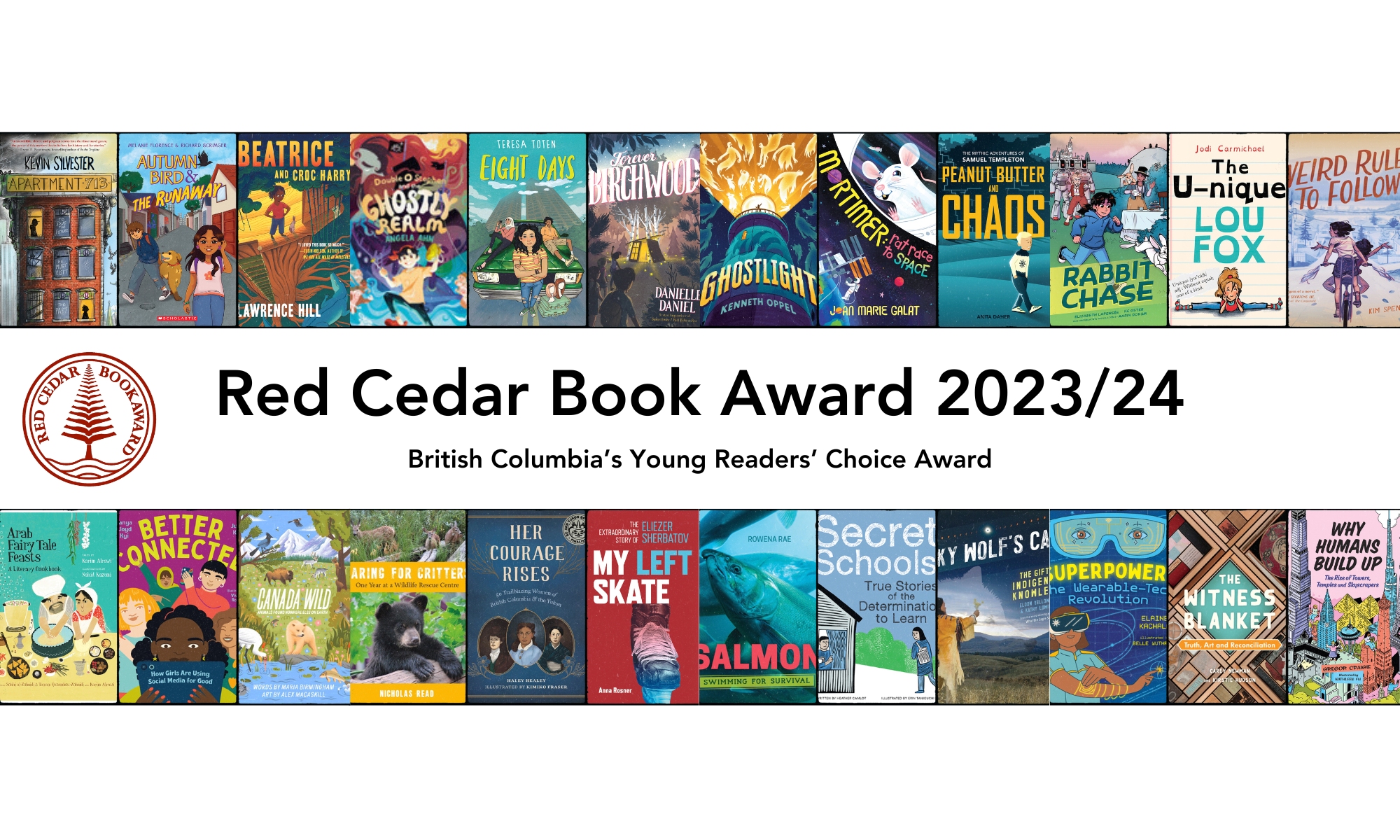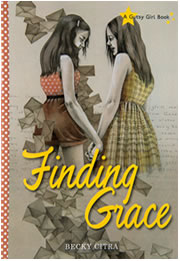The kids from École South Sahali in Kamloops are at it again, bringing us another fantastic interview, this time with Maria Birmingham, author of the nonfiction nominee Tastes Like Music.

1. Why did you want to call your book Tastes Like Music?
I actually had a different title in mind for the book. But the editors sat down and did some brainstorming to see what else they might come up with. They thought the topic of synesthesia was so interesting and especially liked the idea that some people can actually taste music. That inspired them to come up with the book’s title. When they told me their idea for the title, I was excited. I love it because it grabs your attention and makes you wonder just what the book is about.
2. How did you become interested in different ways that humans work?
I was watching a TV show and saw a woman talking about her extreme memory. (She had a condition called Superior Autobiographical Memory — which became the first topic in my book.) I was intrigued and began to think there must be many other unique conditions that we don’t hear much about. So I did some research and found there are quite a few! I got in touch with my editor and proposed this book to him. He got back to me and said they wanted me to write the book!
3. Do any of the topics in the book relate to your life? We just found the answer on page 39!
I have a funny story about this. I didn’t even include my condition — anosmia — in the original list of ideas I submitted to my editor. But he asked me if I could find a few more conditions to include in the book. While I was doing some additional research, I came across an article about anosmia and realized it would be a great topic to cover. The fact is that anosmia is a normal part of my life and something that I rarely think about, so it never dawned on me to include it in the book. But I’m sure glad I did!
4. How long did it take you to do the research for this book before you sent it off to be published?
It took about 6 to 8 weeks to do the research. And then it took another 6 to 8 weeks to write the book. I also sent each topic to an expert to look over what I’d written and then made the changes they suggested. I really wanted to make sure all of the scientific information was accurate. I also wrote second and third drafts. Writing can be a long process!
5. Have you ever written a novel?
I haven’t written a novel… yet! But I am working on a few picture books. I really hope to see one (or more!) of them published in the future. Fingers crossed!
6. Did you study to be a non-fiction writer?
I studied English and History in university. And then I went to college and studied journalism. I started writing non-fiction there, but got even more experience in writing in my first job, which was as managing editor of the Canadian kids’ magazine, OWL. After several years working there, I learned a lot about writing non-fiction for kids.
7. When did you first start writing?
I wrote when I was a kid. But I starting writing as a career when I worked for OWL. I wrote articles about animals and science. And I loved to do it. When I left OWL, I started to write a monthly feature in the magazine called the Weird Zone, as well as other articles. And after a few years, the editor of the book division at OWL asked if I was interested in writing a book. I was thrilled! It’s hard work, but lots of fun!
8. Do you have any other non-fiction books that you are working on?
My third non-fiction book called A Beginner’s Guide to Immortality came out in October. And I just finished a second draft of my fourth book that’s set to come out in 2017. Its topic is a bit of a secret right now, but I can tell you that it’s a technology book with a twist. Hopefully, you’ll keep your eyes out for it!!
A big thanks again to École South Sahali and their Teacher-Librarian Ms. Hunter!






 Kate Jaimet, author of Red Cedar Award nominee Dunces Rock, has just announced the winners of the Dunces Rock Songwriting Contest! There were so many amazing contest entries to choose from that she’s decided to award two winners, one for best video, and one for best song lyrics.
Kate Jaimet, author of Red Cedar Award nominee Dunces Rock, has just announced the winners of the Dunces Rock Songwriting Contest! There were so many amazing contest entries to choose from that she’s decided to award two winners, one for best video, and one for best song lyrics.
 In this award-winning book, the lines of the celebrated poem are interwoven with fascinating information about the First World War (1914-1918) and details of daily life in the trenches in Europe. Also included are accounts of McCrae’s experience in his field hospital and the circumstances that led to the writing of “In Flanders Fields.”
In this award-winning book, the lines of the celebrated poem are interwoven with fascinating information about the First World War (1914-1918) and details of daily life in the trenches in Europe. Also included are accounts of McCrae’s experience in his field hospital and the circumstances that led to the writing of “In Flanders Fields.”
 Amy Phair’s world fell apart when her mother died. Her baby sister was taken away, and now Gramma Davis keeps her busy cooking and cleaning for three young brothers and a neglectful father. It isn’t fair . .. but Amy promised her mama she’d watch over them all. Still, Amy can dream: dreams of beautiful music, of having a sister, of a father who can love his children again. But what can a twelve-year-old do to make promises come true?
Amy Phair’s world fell apart when her mother died. Her baby sister was taken away, and now Gramma Davis keeps her busy cooking and cleaning for three young brothers and a neglectful father. It isn’t fair . .. but Amy promised her mama she’d watch over them all. Still, Amy can dream: dreams of beautiful music, of having a sister, of a father who can love his children again. But what can a twelve-year-old do to make promises come true?